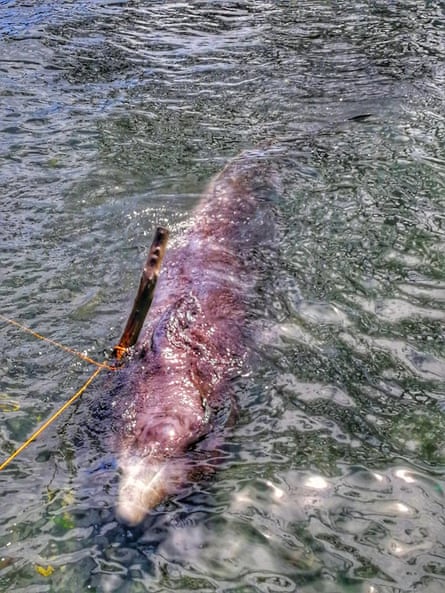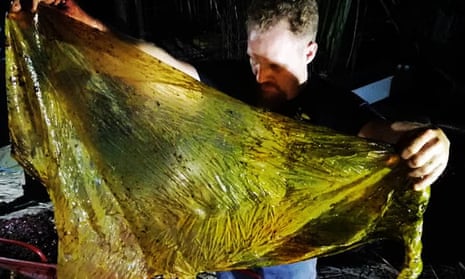A young whale that washed up in the Philippines died from “gastric shock” after ingesting 40kg of plastic bags.
Marine biologists and volunteers from the D’Bone Collector Museum in Davao City, in the Philippine island of Mindanao, were shocked to discover the brutal cause of death for the young Cuvier’s beaked whale, which washed ashore on Saturday.
In a damning statement on their Facebook page, the museum said they uncovered “40 kilos of plastic bags, including 16 rice sacks. 4 banana plantation style bags and multiple shopping bags” in the whale’s stomach after conducting an autopsy.
Images from the autopsy showed endless piles of rubbish being extracted from the inside of the animal, which was said to have died from “gastric shock” after ingesting all the plastic.

The D’ Bone Collector Museum biologists who conducted the autopsy said it was “the most plastic we have ever seen in a whale”.
“It’s disgusting,” they added. “Action must be taken by the government against those who continue to treat the waterways and ocean as dumpsters.”
The use of single-use plastic is rampant in south-east Asia. A 2017 report by Ocean Conservancy stated that China, Indonesia, the Philippines, Thailand, and Vietnam have been dumping more plastic into the ocean than the rest of the world combined.
Marine biologist Darrell Blatchley, who also owns the D’Bone Collector Museum, said that in the 10 years they have examined dead whales and dolphins, 57 of them were found to have died due to accumulated rubbish and plastic in their stomachs.
In June last year, a whale died in southern Thailand after swallowing more than 80 plastic bags, which weighed up to 8kg (18lb) in the creature’s stomach, and marine biologists estimate around300 marine animals including pilot whales, sea turtles and dolphins, perished each year in Thai waters after ingesting plastic.
